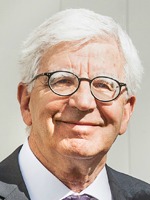 A phalanx of French biotechs rolled into New York this week for a meeting with life science investors. Among the 20 biotechs at the flesh-pressing festival were some laying the groundwork for IPOs on Nasdaq, including Eli Lilly ($LLY)-partnered diabetes player Adocia (EPA:ADOC).
A phalanx of French biotechs rolled into New York this week for a meeting with life science investors. Among the 20 biotechs at the flesh-pressing festival were some laying the groundwork for IPOs on Nasdaq, including Eli Lilly ($LLY)-partnered diabetes player Adocia (EPA:ADOC).
 |
| Adocia CEO Gérard Soula |
Trade association France Biotech arranged the annual meeting--now in its second year--to link two groups that potentially each have what the other wants. The U.S. has deep-pocketed investors who want to plough cash into biotechs but have a finite number of local, good-value options, while France has scores of biotechs but few people willing to fund them once they outgrow the means of the state and academic organizations from which they typically emerge. Each biotech in attendance had money on their mind, but some are nearer to hitting go on their fundraising plans than others.
Adocia is among the French biotechs with near-term ambitions to stuff its vaults full of dollars. The diabetes player--which is developing a fast-acting insulin with Lilly--plans an IPO in the U.S. later this year. And, like many of its European biotech peers, the move is partly motivated by a belief that Nasdaq is a better judge of the worth of a drug developer. "A Nasdaq listing would allow us to get a fair view over the value of our assets and products," Adocia CEO Gérard Soula told Reuters. Soula plans to keep up momentum after the IPO by adding to its roster of large pharma partnership agreements.
OSE Pharma (EPA:OSE) is also on the lookout for partners. The French immuno-oncology player has put its assets in the shop window, with CEO Dominique Costantini saying the dealmaking focus is on finding established partners to advance its pipeline in developing economies. OSE got a taste for such deals in May when it teamed up with Rafa Laboratories to bring its Phase III-ready non-small cell lung cancer treatment Tedopi to market in Israel. Tedopi uses parts of tumor antigens to trigger an attack on the cancer by the body's T cells.
- read the Reuters article